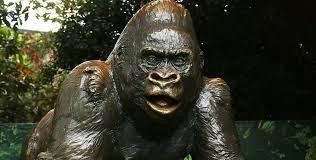How to apply the Nadal Method to your professional life
He is a reference as an athlete and as a person for his values and his behavior both on and off the track.
But we can do much more than admire Rafa Nadal. We can learn from him and identify the values that have raised him to the peak of his career and try to apply them to ours. We tell you how.
 Nadal and his ability to know how to win … and lose
Nadal and his ability to know how to win … and lose
The key to a successful athlete like Rafa Nadal is much more than knowing how to win or know how to lose. For Maite Nieto, the coach that we have consulted, means “to know that you have given 100% and you have put all your passion and that if you have not won this time you have accepted that the other has done better than you. to win on the next occasion.”
For the sports psychologist Claudio Sosa, the key and main virtue of a tennis player like Nadal is to forget about what happened and focus on the following: “and Rafa has the ability to empty his head between point and point. You can never see a glimmer of complaint, of self-reproach, in the middle of the game.”
Claudio tells us that this is something that the uncle of Rafa Nadal, responsible for his training, has explained numerous times: “It is a matter of education, you do not get your child to be educated by making him always say good morning. I work behind and have to get out of it, it’s the same thing here, you get what you do in training, I hate people who complain, in all areas of life, and Rafael never does it in games. an incoherence: if you fail a lot it’s because you do not know enough about what you’re doing, so you better be better, and if you fail a little, it’s something you have to live with without complaining. You do something wrong, you hold it, work to get it right”.
Nadal and his positive thinking
When you see the positive side of things, these do not become problems or difficulties, but rather challenges and challenges that allow us to keep moving forward and give the best of ourselves. But what are the keys to accepting in a positive way that we have failed? Or to endure a victory without going back and half?
Maite Nieto explains that the solution to accept better a defeat in our day to day is to be clear that everything changes and that nothing is permanent. “We tend to identify with everything that happens to us, especially if it is negative and to think that the same thing will happen to us again.” To also know that even if we have lost everything is fine, because it gives us the opportunity to learn something and improve and continue building and growing, it helps a lot, and that you have the power in every situation to choose how to feel, you can not depend on something external to yourself and be at the mercy of the circumstances of life.”
In the event that you have had a great triumph, for this coach you have to celebrate it and it is the reward for all the effort you have invested. “But that does not change what you are, you do not need to identify with that either, your essence remains the same, that’s why having an environment that loves you for who you are and not for your achievements reminds you every day the kind of person in the one you’ve become.”
For Claudio Sosa, the key is to understand that the result of a tennis match has two possible options: you win or you learn , based on this premise, the athlete focuses on playing and not on the possibility of losing. “The error in both life and sports , are our expectations of success and want to control everything, we must always prepare for the unexpected and try to solve every obstacle we face, but if the player prepared to control everything When faced with the unexpected, your mind will not tolerate it and frustration will dominate you.”
“The error in both life and sport, are our expectations of success and want to control everything.” Claudio Sosa, sports psychologist.
Claudio gives us a quote from Winston Churchill that explains this point of view very well: “Success is the ability to go from failure to failure without losing enthusiasm.”
Nadal and his self-confidence
Rafa Nadal is known because he never gives up, knows how to compete and has the mind of a born survivor. We asked our two experts what points we have to work to develop an invincible character too.
“He has a very powerful mentality based on whether he wins or loses, he is focused on achieving his goals,” explains Maite. In the opinion of this expert, Rafa Nadal has the necessary coldness to detach himself from the desired result at the moment of defeat, analyze, learn and prepare for the next one.
“He looks for solutions, he focuses quickly and implements them, and he also enjoys the whole process that is the key to creating anything you want, he has even learned to enjoy suffering, he is not afraid to lose, he is ready for that, although your focus is to win, your real enemy is not defeat, your enemy is fear of defeat, but you also know that without defeat you would not value achievements, there can not be light if there is no darkness.”
“Never giving up, that’s been working since childhood,” explains Claudio. In the opinion of this professional everything in life is trained. The head also and we must start from the basis that the head not only has to be prepared to obey, it also has to “be prepared so that when they tell you that if you fail, do not gesticulate, so do not gesticulate. Until the last ball, do it, you have to develop in the child the talent to know how to obey.”
He reminds us that Rafael Nadal once said these words: “You have to have enough humility to listen to the people who are guiding you. According to how many years it depends on the intellectual capacity of each one. With 6 years you are not very intelligent. With 26 you have to be like to know that the one who guides you from outside does not try to harm you, but to help, to press you to help you. You have to have the intelligence to understand that, even if you do not like what you hear and obey.”
Nadal and his continuous need for self-criticism
Being the best at something is not enough when there is still room for improvement . Or that seems to be one of the slogans of Rafa that did little to surprise us with these statements : “there is always something that needs to be improved, every morning that I got up I’m going to train to improve.” Tonight I had bad percentages in winning setbacks , so tomorrow when I train I will try to polish for the quarter-final match. ”
“Rafa has enough humility to self-evaluate and be able to LEARN, correct and improve”, explains Maite. “Constantly look for stimuli and challenges is good so as not to lose the desire.” Feedback is always a gift, whether external, or self-generated, because that is what will allow you to improve and go further.
For this professional coach, methods such as Kaizen are key to achieving this continuous improvement because they allow 1) identify and analyze the problem, 2) create solutions and modify your plan (or behavior), and finally 3) act, which is the one that goes to determine the desired RESULT
Nadal and the importance of his family environment
Having a family that supports him, Xisca, his partner, or good friends have been key to Nadal not forget who he really is, in addition to emotional stability and accompany him in good times and bad.
Maite tells us that having a solid family base gives you security, peace of mind and helps you create a more stable environment. It also reminds you of who you are in moments of doubt and gives you the strength to rebuild quickly and continue. He adds: “If your family environment is not the most appropriate, you can create it with friends or with professionals who are supportive and help you to have the confidence, security and support necessary to climb great peaks.”
For Claudio Sosa, the family environment is the refuge of the professional player to find the peace he needs outside the competitions, that place where he feels calm and content. “In the world of sports, stability is a fundamental factor: the athlete needs perspective, away from ephemeral fame and fortune, and that’s what his parents and uncles as well as their technicians, physical trainers and representatives have contributed to from that moment”.
Nadal and his humility
Do not forget who you are thanks to your family. But also thanks to you. Rafa Nadal is recognized for his humility and where others see a whole hero he only sees a good worker in his own. A subtle and tremendously important difference.
For Maite Nieto, the key is that happiness is not found in anything external : “That’s why your happiness can not depend on winning or losing, you have to be instead of having and being present in every moment of your life. It gives a full life and if you are lucky enough to feel grateful for everything, only good things can happen to you. ”
“Happiness is not found in anything external, you have to” be “instead of” have “and be present in every moment of your life.” Maite Nieto, coach.
“An athlete must be aware of his limitations and that not everything depends on one,” explains Claudio Sosa. But he also tells us that this humility is perfectly compatible with “having confidence in oneself and working with a clear horizon, since humility does not consist in making oneself less or believing little.” Humility is reality, objectivity is having feet on the floor. ” And he takes it back to the sports field to finish the lesson: “the elite athletes know that they lifted the cup on Sunday and that great success has already happened and on Monday we have to train again with humility and not believe that they no longer have nothing to learn. “







